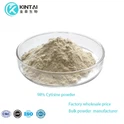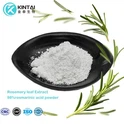The nitric oxide-boosting amino acid citrulline and high-protein powders each offer attractive fitness advantages for supporting performance, muscle growth, and health. Combining them as dietary supplements could provide a synergistic one-two punch. But with limited data on interactions, important questions emerge - is concurrently taking citrulline and your favorite protein suitable and will they work well together? Unpacking what studies reveal and best practices provides key insights.
What is Citrulline and Protein Powder?
Present abundantly in watermelons, citrulline is an amino acid compound converted to arginine and nitric oxide in the kidneys to promote blood flow. Supplementation shows promise for enhancing aerobic energy, muscle pumps, ergogenic fatigue-resistance and recovery from training when taken at doses of 3-6 grams (1).
Protein powders like popular whey and casein derivatives supply concentrated, easily digestible amino acid sources to supply muscles with the building blocks for regeneration and growth following weight lifting or sport activity. Doses of 20-40 grams maximize muscle protein synthesis response (2). Their rapid or slower-digesting profiles make them pre/post workout staples.
Individual Benefits and Mechanisms
Citrulline amplifies nitric oxide signaling leading to muscle cell swelling, nutrient delivery and waste product removal effects that boost resistance training capacity and outcomes. Meanwhile, protein powder furnishes direct muscle-building amino acid substrate for robust repair and development of contractile myofibrillar proteins damaged by mechanical overload.
By influencing separate but complementary physiological pathways, combining citrulline powder and protein supplementation could promote amplified exercise adaptations. Citrulline’s nitric oxide boost widens the routes for shuttling protein-derived amino acids into receptive musculature through heightened blood flow while additionally mitigating fatigue.
Can I Take L-Citrulline with Protein Powder?
While no studies have explicitly investigated taking citrulline concomitantly with protein powder, extensive foundational sports nutrition evidence suggests additive or even synergistic effects are highly plausible. Since they influence separate pathways and mechanisms, stacking supplements like these with proven individual efficacy remains a common practice.
However, research confirms citrulline powder and pure protein digestion speed differs slightly. This could impact how efficiently they get absorbed and utilized together. Careful timing and dosing matter for optimization (3). Personal testing finds what feels best.
How to Take Citrulline for Best Results?
Most fitness enthusiasts supplement with peak citrulline powder doses of 3-6 grams about 60-90 minutes pre-exercise to align with blood concentration peaks. Splitting this dose before and during training may prolong circulation. Consuming slower-digesting casein protein powder alongside minimizes any absorption interference while still benefiting from sustained amino delivery overnight.
Take faster whey protein isolates within an hour post-exercise alone when higher nitric oxide signaling from citrulline matters less and quicker amino acid supply takes priority. This avoids marked Competition for transporter uptake. Get the benefits from both strategically (4).
Expert Opinions and Recommendations
While limited direct clinical trials exist presently, respected sports dietitians and medical professionals suggest combined citrulline and high-quality protein supplementation remains reasonable for those tolerating both compounds well independently.
Intake timing and amounts warrant personalization for the activity patterns, recovery needs and sensitivities of each unique physiology through diligent self-experimentation. Checking for dehydration or gastrointestinal distress provides prudent safeguarding as well. Consult registered nutrition experts for guidance.
Is L-Citrulline Safe for Kidneys?
For most healthy people, research suggests typical l-citrulline powder poses little risk of adverse kidney effects. One study found doses up to 15 grams per day for 7 days did not negatively impact kidney function in healthy young men.
However, those with preexisting renal conditions like chronic kidney disease should take caution with citrulline due to possible excessive nitric oxide production worsening dysfunction. Impaired kidneys have difficulty filtering excess nitric oxide, leading to oxidative stress and inflammation.
Specifically, conditions like renovascular hypertension, renal artery stenosis, polycystic kidney disease, glomerulonephritis or ischemia may need to avoid supplemental citrulline entirely based on limited evidence showing 5 grams daily further reduced renal blood flow and function.
Under physician guidance, moderate L-citrulline doses could be trialed in mild dysfunction via frequent monitoring. More data is still needed on long-term renal effects in at-risk groups. For now, healthy hydration status is key for minimizing any possible renal overload from use. Those on dialysis may require dose adjustments or discontinuation as well.
When in doubt, having a nephrologist evaluate your unique kidney health profile determines if citrulline supplements are appropriate or ill-advised. Monitoring fluid intake, urinary output and any side effects proves essential even in normal kidney function.
What Not to Take with Citrulline?
Avoid stacking citrulline with other stimulants or pre-workouts containing arginine, which taps similar nitric oxide pathways. Also steer clear of mixing with drugs for erectile dysfunction, high blood pressure or cardiovascular illness without medical approval as adverse interactions are possible.
Current sports nutrition evidence suggests simultaneously supplementing with citrulline and your choice protein at reasonable doses seems reasonably safe, well-tolerated and likely synergistic for most fit adults. Strategize intake timing to optimize directional benefits from each one. Record any side effects; adjust amounts downward or halt use if adverse reactions emerge. Lastly, have any underlying medical or renal issues evaluated beforehand to determine appropriateness as usual precautions warrant.
Our Pure Citrulline Powder has received unanimous praise from customers. If you would like to know more about this product, please feel free to contact Sales@Kintaibio.Com.
References:
1. Pérez-Guisado, J., & Jakeman, P. M. (2010). Citrulline malate enhances athletic anaerobic performance and relieves muscle soreness. The Journal of Strength & Conditioning Research, 24(5), 1215-1222.
2. Morton, R. W., Murphy, K. T., McKellar, S. R., Schoenfeld, B. J., Henselmans, M., Helms, E., ... & Phillips, S. M. (2018). A systematic review, meta-analysis and meta-regression of the effect of protein supplementation on resistance training-induced gains in muscle mass and strength in healthy adults. British journal of sports medicine, 52(6), 376-384.
3. Jäger, R., Purpura, M., & Shao, A. (2017). Analysis of the efficacy, safety, and regulatory status of novel forms of creatine. Amino acids, 49(8), 1369-1383.
4. Kerksick, C. M., Wilborn, C. D., Roberts, M. D., Smith-Ryan, A., Kleiner, S. M., Jäger, R., ... & Greenwood, M. (2018). ISSN exercise & sports nutrition review update: research & recommendations. Journal of the International Society of Sports Nutrition, 15(1), 1-57.
5. Bieganowski, A., & Brenner, C. (2004). Discoveries of nicotinamide riboside as a nutrient and conserved NRK genes establish a Preiss-Handler independent route to NAD+ in fungi and humans. Cell, 117(4), 495-502.







